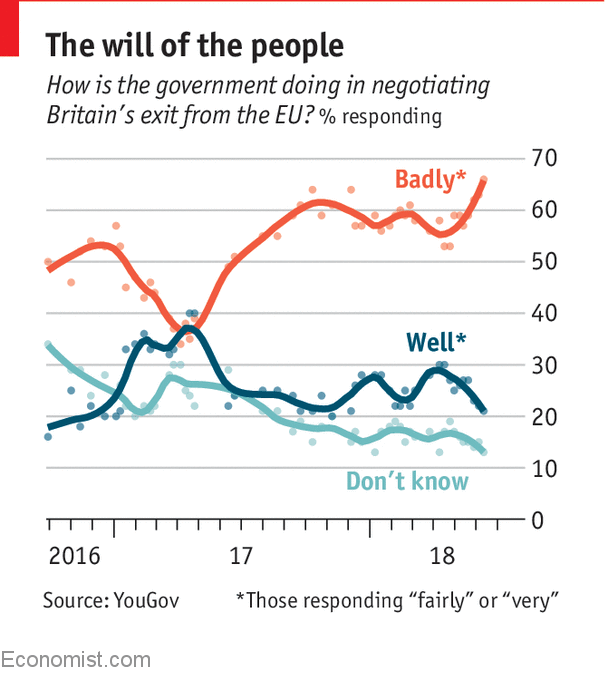
|
|
That sentiment has turned may not be surprising given how Britain voted. Broadly speaking, the old wanted to leave while the young wished to remain. In a recent article for Prospect magazine Peter Kellner, a former pollster for YouGov, calculates that since June 2016 deaths of the (mostly) old have reduced the ranks of Leave voters by 600,000, and those of Remain voters by 300,000. During the same period, an additional 650,000 would-be Remain voters have become eligible to vote, compared with just 150,000 additional Leave voters. Together, the net effect of demographic change alone—holding sentiment within each age group constant—is to reduce Leave’s lead by 800,000 votes. By the end of 2018, Mr Kellner estimates, demography, assuming voting patterns by age remain as they were in June 2016, will mean “Remain” would win a second vote.

Both sentiment and demography, therefore, make it highly likely that a plurality of Britons will oppose leaving the EU once it actually happens. Remain supporters argue that is a good justification for a second vote. But on this question, unlike many others, Theresa May, Britain’s prime minister, stands firm in opposition. Whatever happens, Mrs May’s handling of the Brexit process is leaving partisans on both sides frustrated. Nearly 70% of Britons polled by YouGov in June thought that the government was doing a “bad” job at negotiating the country’s future relationship with the EU, and with it, the rest of the world. Reason again for a re-think about the whole mess. [...]